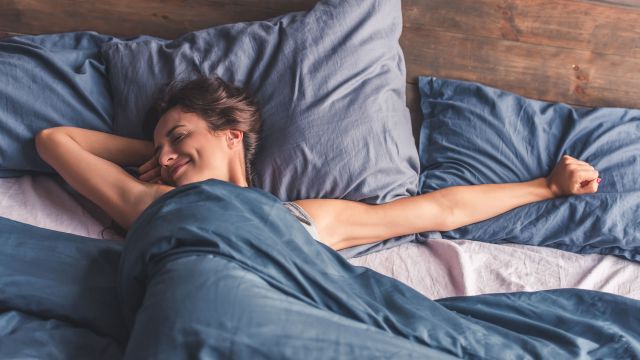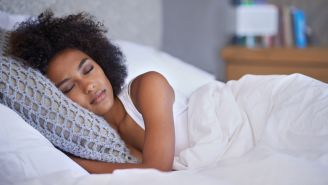How many times in the last week have you said the words, “I’m tired?” Chances are, quite a few. The American Academy of Sleep Medicine and the Sleep Research Society recommends that adults get at least seven hours of sleep per night, yet a 2015 Gallup study indicates that 42 percent of Americans get less than that. A 2018 National Sleep Foundation poll found that only 10 percent of Americans prioritize sleep over other aspects of their daily life.
But too little shut-eye isn’t the only problem. More than a third of Americans report that their sleep is either “poor” or “only fair,” according to the National Sleep Foundation. That’s troubling because two-thirds of the people reporting poor or fair sleep also report poor or fair health. Insufficient or poor sleep has been linked to a number of chronic illnesses, including diabetes, heart disease, obesity, Alzheimer’s and depression, not to mention car crashes, industrial accidents and medical errors made when bleary-eyed.
How to get better sleep
So you need more sleep, or better sleep, or both, but how do you get it? Here are some tips.
- Develop a relaxing bedtime routine. Before shutting your eyes, try reading, taking a shower, writing in a journal—anything that helps to make you calm and tired.
- Stick to a sleep schedule. Go to sleep and wake up at the same time, even on weekends.
- Make sure your bedroom is dark and quiet. Invest in blackout curtains to keep out any ambient light.
- If you have a television in your bedroom, get it out. While you’re at it, stop scrolling through social media right before bed as well. Avoid using screen devices like computers, tablets and smartphones at least 30 minutes before bedtime. The blue light from these devices suppresses the hormone melatonin, which signals to your body that it’s time to hit the sack.
- Avoid large meals, caffeine, alcohol and nicotine before bed. Make sure you are also adequately hydrated, but not overly so, before hitting the hay.
- Get enough exercise during the day. Less sitting or stationery time is associated with better sleep.
Start tracking your sleep
If you frequently wake up tired or are tired throughout the day, you may want to keep a sleep diary. Tracking your sleep can allow you to see which of your habits are conducive to shut eye, and which may be keeping you up.
You can use a pen-and-paper diary, a smartphone app or a wearable device to track your sleep. The Sharecare app, available for iOS and Android devices, includes a sleep tracking feature.
Keep in mind that hand written sleep diaries may not be as effective as an app because they can’t record changes while you’re asleep. However they are a good way to record how you feel when you wake up and throughout the day.
But despite the drawbacks, tracking your sleep can help you feel a sense of ownership and empowerment. It may motivate you to be more mindful of your sleep and to make adjustments. You may even find that waking up feeling refreshed and energized provides the spark you need to cut short late-night binge watching and get the zzz’s you need.






